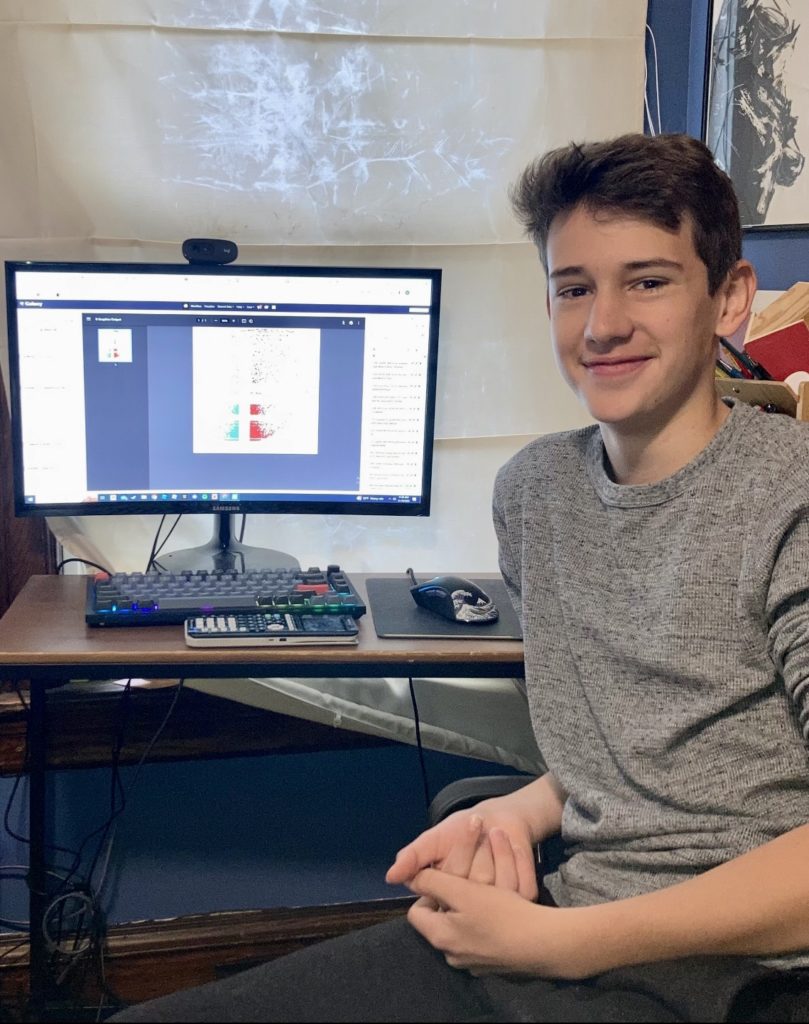
Haddonfield Memorial High School junior Ryan Buschman was one of about 25 to 30 students who participated as an intern in the NASA Gene Lab for High Schools program this summer.
Buschman always had an interest in science. During the online intern program, he worked for seven hours Monday through Friday attending lectures, participating in team-building events and working with other students from across the country on their research projects. He also heard guest lectures with topics that included plants in space and radiation research.
While the program centered on learning aspects of astrobiology, Buschman also had valuable opportunities to network and connect with professors, alumni and his fellow classmates. A virtual networking space was available for him to talk to groups or individuals and ask for feedback.
Buschman recalled working late nights with three teammates on their group project, analyzing data from a previous experiment by researchers on the plant arabidopsis thaliana, a model plant that is part of the mustard family.
“It’s kind of at the center of where a lot of plants evolved from,” Buschman explained, adding that as people travels to space in the future – including space stations, planet missions and to the moon – it’s important to have fresh vegetation for nutrition, mental health and dealing with climate change.
“So this sort of research, looking at changing a plant’s genome and seeing how it reacts to its new environment, in this case, it would be micro gravity or the lack of gravity,” Buschman noted. “This research will help us understand how to create a plant that could survive in space and then thrive in another “plant-ier” environment, or perhaps on a more extreme earth environment.”
Research by Buschman and his team involved looking at the connection between the unfolded protein response and the connected pathway called the cell wall integrity pathway. Though they were able to find correlation, Buschman acknowledged that the teammates were unable find causation for what they were seeing.
“The hypothesis was, when you mess with the unfolded protein response by downregulating a specific gene (the way they looked at in the original study), it also has a direct impact on the cell wall integrity pathway, and we want to test that by inhibiting a cell wall integrity gene and seeing how that impacts the unfolded protein response as well,” Buschman said.
Buschman’s interest in space stems from a fifth grade project about the expansion of the universe. Last year, he took an affiliate course with MIT (Massachusetts Institute of Technology) astrobiology that gave him a better sense of what he is interested in within the field and programs more specific to those interests.
Buschman and his team will present their work in Washington, D. C., at the American Society for Gravitational and Space Research Conference on Saturday, Nov. 18. Their presentation will include proposing a future experiment to test their hypothesis.
“It was definitely stressful and required a lot of effort, but I thought that was the most fun part,” said Buschman.









